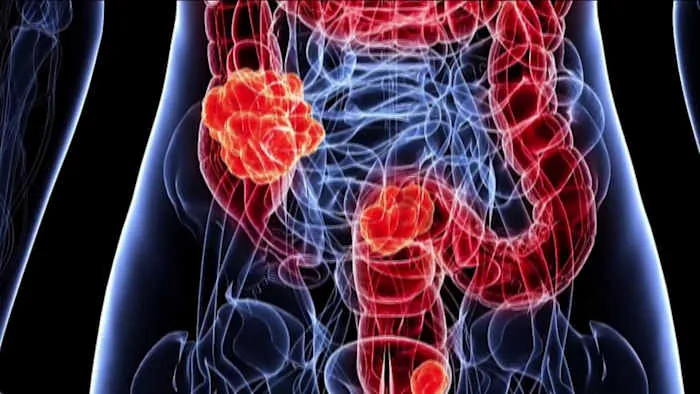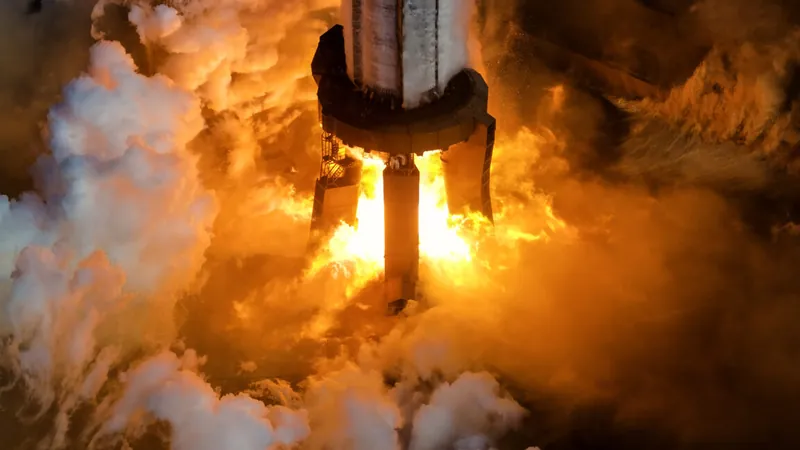
South Lyon Man Becomes Colon Cancer Advocate After Late-Stage Diagnosis: “Don’t Wait—Get Screened!”
2025-03-24
Author: Ling
South Lyon, Mich.
Rajeev Joshi, a 50-year-old South Lyon resident, found himself in a life-altering situation after ignoring his doctor’s recommendation for a routine colonoscopy.
At first, Joshi viewed the procedure as an inconvenient hassle, complete with the dreaded bowel prep and the unfamiliarity of anesthesia.
“I thought it was a nuisance,” he recalls. “I figured, how urgent could it be? I had no symptoms and considered myself low risk due to my vegetarian diet and lack of family history of colon cancer.” But as time passed, he postponed scheduling his colonoscopy not once, not twice, but three times.
Eventually, when pushed by his doctor, Joshi opted for an at-home Cologuard test. While vacationing with his family in Europe, he received the surprising and alarming news: the test came back positive.
Upon returning home, a follow-up colonoscopy revealed a significant tumor in his transverse colon, along with several polyps and metastasis in lymph nodes and the liver. The diagnosis? Stage IV colon cancer.
A Shocking Discovery
This wasn’t the first time Joshi faced such shocking news; his first wife, Anjali, had succumbed to stage IV stomach cancer years earlier. “The memories came flooding back. I was devastated but determined,” he says, channeling his engineer mindset into understanding and tackling his illness head-on.
Dr. Harry Wasvary, Chief of Colorectal Surgery at Corewell Health William Beaumont University Hospital, took on Joshi's case and praised his progress. “Rajeev’s case was remarkable. Modern treatment allowed us to target his tumor biology effectively. Almost miraculously, his tumors disappeared without surgery,” Wasvary explained.
Joshi endured immunotherapy with minimal side effects, maintaining his daily routine and crediting his years of meditation for his strength throughout the treatment process. After 16 months, Rajeev still can't believe his luck—a week marked as cancer-free.
The Importance of Early Screening
However, he’s well aware that many others aren’t so fortunate. “I was incredibly lucky. Most people don’t have such a happy ending when diagnosed late,” he states. Dr. Wasvary echoed this concern, emphasizing the importance of early detection. “Many patients with colorectal cancer show no obvious symptoms, which is why routine screenings are vital.”
Current guidelines now recommend starting routine colonoscopies at age 45. This change is due to a rising number of diagnoses in individuals under 50. For anyone with symptoms or a family history of colorectal cancer, it’s imperative to consult with a doctor to determine if screening should occur earlier.
“There’s a stigma surrounding colonoscopies,” Dr. Wasvary noted. “People worry about the preparation and discomfort, but those fears shouldn't deter you—this procedure can save lives.”
A Call to Action
Now, Joshi is a passionate advocate for early screening. He has a powerful message for others: “Don’t procrastinate like I did. The inconvenience is minor compared to the peace of mind that comes with knowing your colon health. It could truly change your life.”
Prevention and early intervention are key. If you’re approaching the age threshold for screening, or if you have concerning symptoms, act now—don’t wait until it’s too late!


 Brasil (PT)
Brasil (PT)
 Canada (EN)
Canada (EN)
 Chile (ES)
Chile (ES)
 Česko (CS)
Česko (CS)
 대한민국 (KO)
대한민국 (KO)
 España (ES)
España (ES)
 France (FR)
France (FR)
 Hong Kong (EN)
Hong Kong (EN)
 Italia (IT)
Italia (IT)
 日本 (JA)
日本 (JA)
 Magyarország (HU)
Magyarország (HU)
 Norge (NO)
Norge (NO)
 Polska (PL)
Polska (PL)
 Schweiz (DE)
Schweiz (DE)
 Singapore (EN)
Singapore (EN)
 Sverige (SV)
Sverige (SV)
 Suomi (FI)
Suomi (FI)
 Türkiye (TR)
Türkiye (TR)
 الإمارات العربية المتحدة (AR)
الإمارات العربية المتحدة (AR)